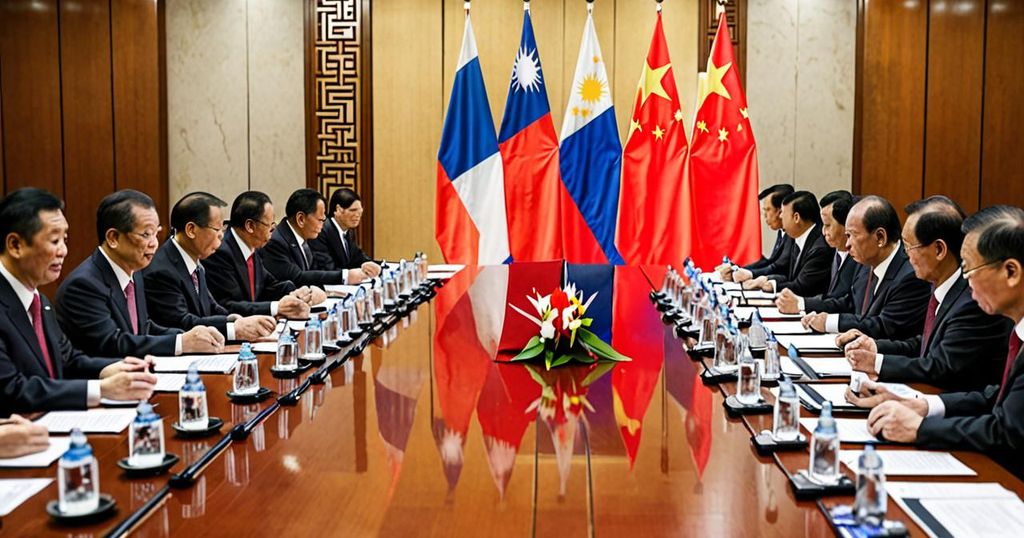Chinese and Philippine officials have recently engaged in high-level discussions to address the ongoing disputes in the South China Sea. These talks are a response to a series of confrontations between the two countries, reflecting the escalating tensions in the region. The meeting, the first of its kind since January, was held in Manila, where Philippine Foreign Affairs Secretary Enrique Manalo expressed optimism for positive outcomes from the dialogue.
An incident on June 17, where Chinese coastguards intercepted a Philippine naval mission, resulted in clashes, injuries, and increased animosity between the two nations, underscoring the contentious nature of the South China Sea dispute. Manila has accused Beijing of undermining peace and stability in the region, while China has criticized the Philippines for actions that it claims violated its territorial sovereignty and maritime rights.
The ongoing dispute centers around the Sabina Shoal, which both countries claim as their own. This area serves as a resupply point for Philippine vessels stationed at the Second Thomas Shoal. The struggle for control over these strategic locations has led to repeated clashes and accusations from both sides. While China is concerned about the potential fortification of the area by the Philippines, Manila has expressed apprehension over China’s efforts to create an artificial island at the Sabina Shoal.
In recent weeks, China has increased its maritime presence in the South China Sea, deploying a 12,000-tonne coastguard vessel and an aircraft carrier. These actions have raised concerns, with the Philippine Navy closely monitoring the movements of these vessels.
The escalation of tensions in the South China Sea highlights the complexities of territorial disputes in the region. Both China and the Philippines have reiterated their respective claims and are actively pursuing strategies to consolidate their positions. These recent developments emphasize the need for diplomatic dialogue and cooperative efforts to mitigate the risk of conflict and foster stability in the South China Sea.
As the international community closely observes the evolving dynamics in the region, it is imperative for all parties involved to uphold the principles of international law and work towards peaceful resolutions. Engaging in constructive dialogue and adhering to diplomatic channels will be crucial in de-escalating tensions and fostering a conducive environment for regional stability and cooperation.

Leave a Reply